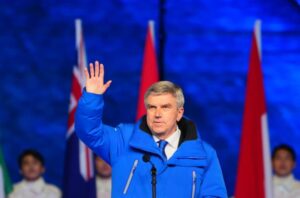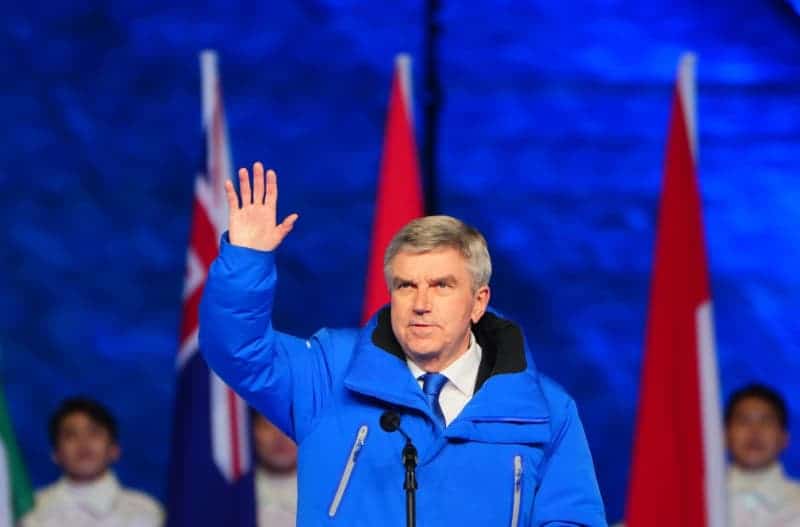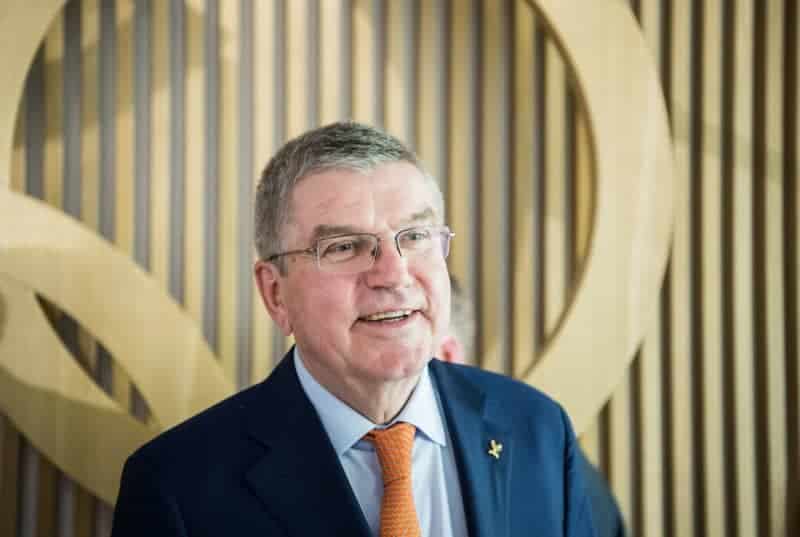
DPA

Athletes and officials who express support for Russia’s invasion of Ukraine could face sanctions from the International Olympic Committee (IOC), its president Thomas Bach said on Friday.
Bach told the 139th IOC Session that they aware that under Russian legislation opposition to the war could lead to imprisonment of up to 15 years but insisted that “under such circumstances, silence in itself can be a message.”
Bach highlighted sanctions already issued by the ruling swimming and gymnastics bodies against Russians Evgeny Rylov and Ivan Kuliak respectively over pro-war messages.
The IOC president defended the tough stance against Russia and Belarus right after the start of the invasion on February 24 as many sports organizations followed the IOC recommendation to ban athletes and officials from both countries from international competition.
Bach said the IOC had to act quickly because “it was evident that governments wanted to decide who can take part in which international competitions” which would have set a dangerous precedent.
“Today it is Russia and Belarus, but if we do not act, tomorrow it will be the government from country A not wanting athletes from country B to participate. Or Government C demanding its athletes not to compete against athletes from country D and so on and so forth,” he said.
“This would be a situation that is contrary to all the principles we are based on. If it is in the hands of politicians to decide who can take part in which competition, then the non-discriminatory foundation of our global sports system is gone.
“It would mean the full politicisation of sport. It would mean that sport and the athletes would become just a tool of the political sanctions system.”
Bach also said that what he named “protective measures” rather than “sanctions” were needed because the safety of Russian and Belarusian athletes “could not be guaranteed because of the deep anti-Russian and anti-Belarusian feelings” in many other countries.
The February 24 start of the invasion was four days after the closing ceremony of the Beijing Winter Olympics – where Bach had again called for peace – and fell into the Olympic truce period which covered the Olympics and Paralympics in China.
The IOC action included stripping Russian President Vladimir Putin, deputy Prime Minister Dmitry Chernyshenko and deputy chief of staff of the presidential executive office Dmitry Kozak of the Olympic Order in an unprecedented act.
Bach said “unfortunately we could only appeal, because our relationship with the Russian political leadership has dramatically deteriorated over the past years.
“It deteriorated following the doping scandal (around the Sochi 2014 Games), cyber attacks and even personal threats to individuals from the IOC and Olympic Movement.”



Recommended Comments
There are no comments to display.